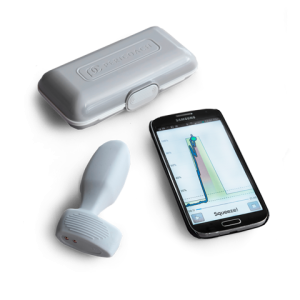Women and Aging: Managing the Changes of Menopause
In a pivotal episode of The Golden Girls—America’s favorite sitcom about four mature women in the throes of middle age—Blanche Devereaux rushes to her doctor in a panic when she thinks she’s pregnant, only to learn that her missed period is the onset of menopause.
She’s horrified at the revelation—that her youth and vitality are fading and that “old age” is on the horizon. She is quickly reassured by her roommates that she is still the belle of the ball, of course, and goes on to enjoys year of steamy dates with her “gentleman callers” in the ensuing seasons
Blanche’s experience is a lesson for women everywhere—life goes on after menopause!
Reproductive and other physiological changes are absolutely normal for women as they age. Yet, for many women, this knowledge doesn’t necessarily make the discomfort that can accompany menopausal changes easier to swallow.
Our aim is to demystify the changes that happen before, during, and after menopause, and provide the information women need to take control of their health and thrive.
What Is Menopause and How Do I Know When I’m Going through It?
Menopause marks the end of a woman’s menstrual cycles and is defined as occurring 12 months after a woman’s last menstrual period. Most women experience menopause around age 50, but the usual age range is between ages 45 and 55.
Perimenopause can start several years before menopause and is marked by changes in menstrual flow, frequency, and duration. Perimenopausal women typically experience more frequent periods at first, followed by missed periods, until they reach menopause and stop menstruating altogether.
Premature menopause (pre-menopause) before age 40 can happen as a result of surgery, such as a hysterectomy, in response to an autoimmune disease, or as a result of damage to the ovaries from chemotherapy or another cause.
Common symptoms associated with the lead up to menopause include hot flashes—a sudden feeling of heat and flushing in the upper body—and some sweating, irregular or skipped periods, mood swings, irritability, fatigue, insomnia, depression, headaches, short-term memory problems, and changes in libido. Some women will experience very few of these symptoms, and they may be mild, while others will experience them more severely (especially in the case of hot flashes).


Hormones: The Main Driver of Menopausal Changes
A woman’s reproductive hormones (estrogen, progesterone, gonadotropin releasing hormone, follicle-stimulating hormone, and luteinizing hormone), regulate menstruation, fertility, and sex drive (libido). When a woman experiences menopause:
- The ovaries stop producing estrogen and progesterone and stop releasing eggs.
- Menstrual periods stop; no periods for a year is strong evidence of menopause in women age 45+.
Other changes that can happen as hormone levels decrease include:
- Vaginal walls become thinner, drier, and less elastic, which can lead to irritation and painful sex (dyspareunia). This is referred to as vaginal atrophy, which can also be accompanied by atrophic vaginitis (inflammation).
- Risk of vaginal yeast infections (thrush) and urinary tract infections (UTIs) increases.
- External genital tissue can thin and decrease, leading to irritation.
Other common changes include:
- Hot flashes, headaches, and trouble sleeping, moodiness, and short-term memory problems (as mentioned earlier).
- Reduction in breast tissue.
- Lower sex drive and sexual response.
- Bone loss (osteoporosis).
- Loss of tone in pubic muscles, resulting in prolapse; a Kegel exerciser can assist women in strengthening their pelvic floor, which may help prevent prolapse.

The PeriCoach Pelvic Floor Exercise System
Changes in breast tissue are also common as women age, especially after menopause. Women lose fat, tissue, and mammary glands in their breasts as they age, mostly due to a decrease in estrogen. The connective tissue that supports the breast also loses elasticity, which can cause the breasts to sag, and the areolas may also become smaller. Breast lumps are common, around menopause, and are almost always non-cancerous cysts—always make sure to have lumps checked with your doctor.
Managing the Changes of Menopause
The thought of experiencing any of these symptoms can feel overwhelming for many women. Thankfully, there are ways of managing the changes of menopause, which we’ll explore below.
Managing Decrease in Hormones
Therapy with estrogen and/or progesterone helps some women manage the symptoms of menopause, including hot flashes and the vaginal dryness that can cause pain with intercourse. Hormone therapy comes with risks, so is not for every woman. Women should discuss the risks and benefits of hormone therapy with their healthcare provider.
Managing Bladder Control Problems
Physiological changes during menopause can make it harder for women to control their bladder. Loss of estrogen can cause the vaginal tissue to become less elastic, the lining of the urethra to thin, and the pelvic floor to weaken. These changes can, in turn, lead to:
- Stress incontinence: Losing a few drops of urine when you cough, sneeze, laugh, run, or strain (from heavy lifting, for example).
- Urge incontinence: Sense of urgency to urinate, and, in some cases, not making it to the bathroom in time.
- Nocturia: Waking up several times during the night to urinate.
Performing regular Kegel exercises can help to strengthen the pelvic floor muscles and reduce the incidence of urinary incontinence. Use of a pelvic floor strength trainer featuring biofeedback can be helpful in providing guidance and motivation.
Managing Reduced Sexual Desire/Painful Intercourse
Sex that is still painful, even with any of the treatments mentioned above (hormone therapy, topical estrogen, OTC vaginal moisturizers), could be due to another anatomical problem, such as the shrinking or shortening of the vagina. Using a vaginal dilator may help gradually open the vagina. This usually involves using dilators of varying sizes (along with a lubricant) until the vagina becomes more open and sex becomes more comfortable.
One of the most distressing changes of menopause for some women is reduced sexual desire. Hormonal changes and vaginal changes can play a significant role in reduced desire, as can life stresses and changes in your relationship with your partner.
Women who experience a persistent lack of sexual desire may suffer from “hypoactive sexual desire disorder.” It’s important to note that lack of sexual desire is complex and is generally due to a combination of factors, which can include conflict with your partner, medical problems, anxiety, cultural issues, urinary incontinence, and difficulty with arousal or orgasm. It’s best to talk to your gynecologist or seek the guidance of a sex counselor if a lack of sexual desire is troubling you.
On the other end of the spectrum are women who find the end of menstruation and worries of becoming pregnant liberating; as a result, these women may experience an increase in sexual desire after menopause.
Managing Vaginal Dryness, Irritation, and Infections
Those who cannot or prefer not to take hormones may benefit from using a topical estrogen inside the vagina, which can help thicken vaginal tissues, and increase moisture and sensitivity. There are also several over-the-counter (OTC) vaginal moisturizers that can help relieve some of the discomfort of vaginal dryness.
Here are some best practices to manage vaginal dryness and irritation:
- Avoid harsh deodorant soaps, wet wipes, bubble bath, bath oils, and creams containing heavy fragrance.
- Wait for soreness in your vagina or on your vulva to subside before having vaginal intercourse.
- Avoid activities like cycling and spinning that put pressure on your pubic area, which can create irritating friction.
- Avoid hot tubs and swimming pools, as the chlorine can irritate already sensitive tissues.
- Avoid underwear with lace in the crotch area, opting instead for comfortable underwear with a cotton lining.
- Don’t wait to urinate until you really have to go.
- Urinate just before and just after vaginal sex to flush out bacteria that can enter the urethra and cause bladder infections.
- Drink plenty of water.
Many women avoid having sex because of fear of pain or discomfort. It may come as a surprise to some that having regular intercourse can help keep vaginal tissues thick and moist, and prevent shrinking or shortening of the vagina. Far from accepting the end of an active, healthy sex life, many women in menopause will be pleased to learn that continued regular sex is an important part of maintaining vaginal health.


As applies to people of all ages, regular exercise; a healthy diet rich in vegetables, fruits, whole grains, fiber, and lean proteins; and staying active and engaged with family and friends are all part of a healthy lifestyle for women undergoing “the change.”


Menopause is a reality for every woman as she progresses into her senior years, but it doesn’t have to mean the end of sexual intimacy or activity. Knowing how to manage the changes that come with menopause and the treatments available to ease the transition will help you get through this time of transformation.


